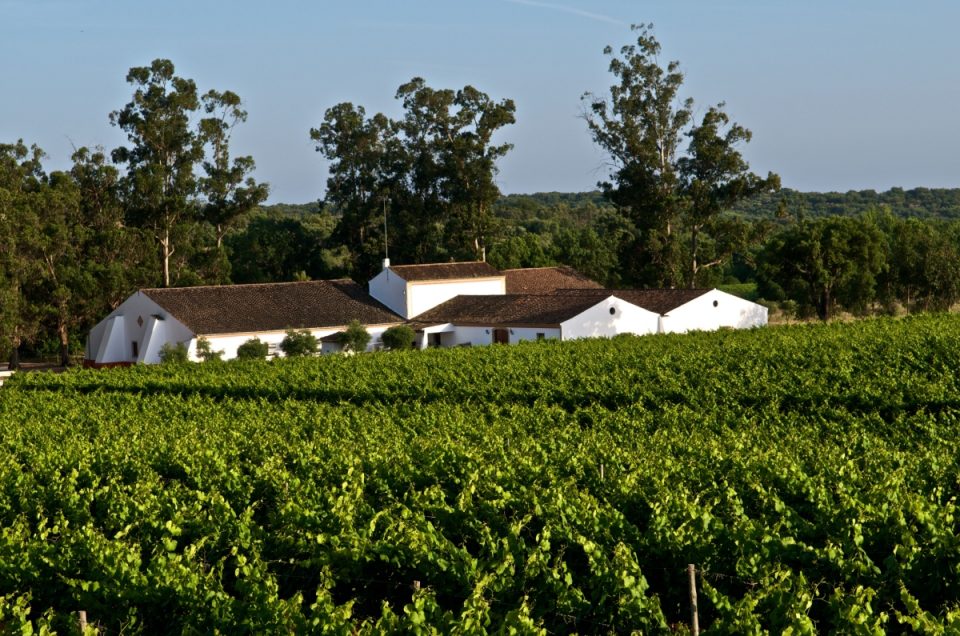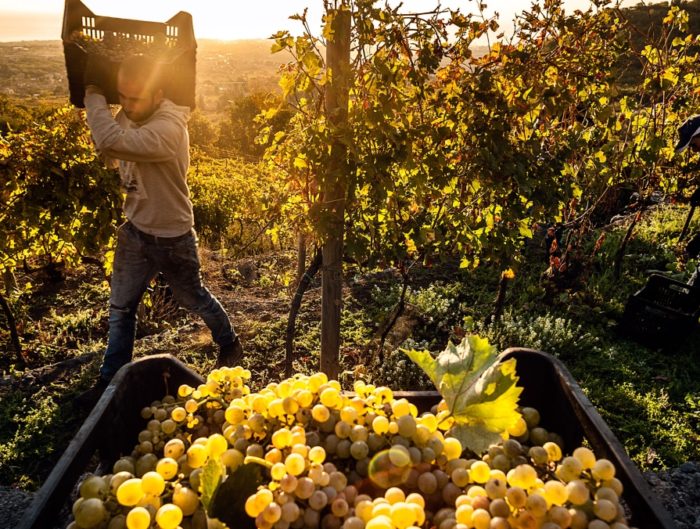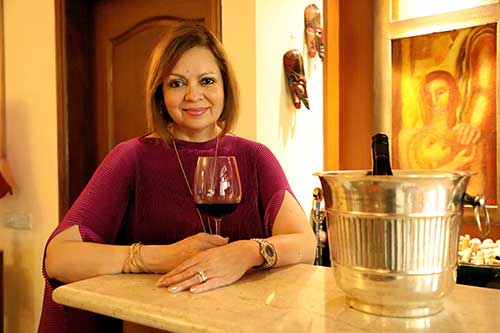As the world is discovering Portugal and its many wine regions and grapes, here is another story of an ‘immigrant grape’ which has found its home in Alentejo, in the acclaimed estates of Herdade do Mouchão
Never mind the Algarve.
If you want to eat, drink and be merry while exploring Portugal, skip the tourist-packed beaches and head to Alentejo instead. Known as the grain bowl of the country, this large, relatively flat region (adjacent to and accessible from Lisbon) is relatively lightly populated, boasting of rich, fertile soils, generous, rustic food (delicious pork – heard of pata negra?) and relaxed, happy living. In recent years it is also getting attention for producing wines which are tremendously approachable and fruit-laden, different in profile from the rich, concentrated red wines of the Douro or the high-acidity whites of Vinho Verde. On a merry 7-day whisk around the region from my base in Évora, its largest town, I was both delighted and engaged by what I experienced.
Of course, my holidays are always busman’s holidays, and this was no different: wine remains my focus. Why visit a country and not discover its terroir, its grapes, its culinary delights? Fascinated that Alentejo should be the new, favoured home of Alicante Bouschet, that teinturier grape which has been disdained in its native France for its powerful rusticity, I set off looking for answers.
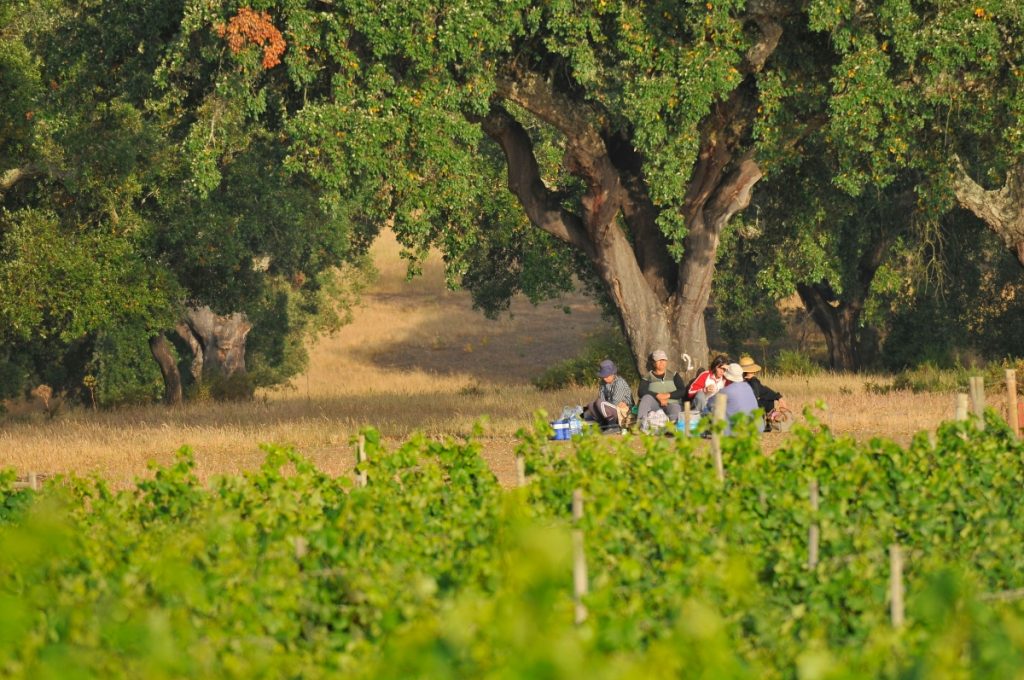
Vineyards at Mouchao. The workers take a break
… And found them in Herdade do Mouchão. The historic 900-hectare estate (of which 41 hectares is planted with grapevines and expected to double in the next several years) has become the celebrated new home of Alicante Bouschet. As I walked the estate with director David Ferreira, past stripped-back cork trees (harvested once in 9 years – Portugal grows 50% of the world’s cork), he told me that Mouchão, as the estate is known, has pioneered the Alicante Bouschet wave in Portugal. “Alicante Bouschet is our soul.” DOP Alentejo, which came into the spotlight for its wine in the 1990s, thanks to the EU wine support programme, consists of 8 sub-regions.
Several of Portugal’s established businesses have long-standing roots in its past with England. Mouchão, too, is family-owned. The story goes that Thomas Reynolds came to Portugal to trade in Port early in the 19th century and eventually moved south to Alentejo to enter the cork business. Reynolds brought grapes in from France and set up his estate in Alentejo. He also built the mud-walled, red-roofed rustic winery on the estate in 1901. Except for a brief period during 1974’s Carnation revolution, the control remains with the family, who runs it as a large country estate (the current owners are descendants of Thomas Reynolds). Besides the cork trees, they have olive trees, rear sheep and pata negra pigs. And of course, they famously also make wine – about 40 hectares are set aside for viticulture. “Mouchão is about more than just business.” Indeed, Mouchão is an iconic name in Portugal’s wine industry.
Given the demand for Mouchão’s wine, the winery could well have been shining stainless steel and high-tech, but no – the grapes are hand-harvested and foot-trodden in old marble-topped lagares. The grapes are
pressed in old basket presses going back to 1901. The wine is matured in large old 5000-litre tonels, as well as smaller 225-300 litre barrels, as I discovered on my walk around the winery. On the estate, I walked past the acclaimed Carapetos vineyard, all of 7-8 hectares and cordon-trained with no irrigation permitted, the source of their most premium Alicante Bouschet grapes. “If you find chocolate, vanilla, and smoke in the wine, it is because of the grapes, not the wood,” says Ferreira. To ensure concentrated fruit, green harvest is performed and yields are kept low.
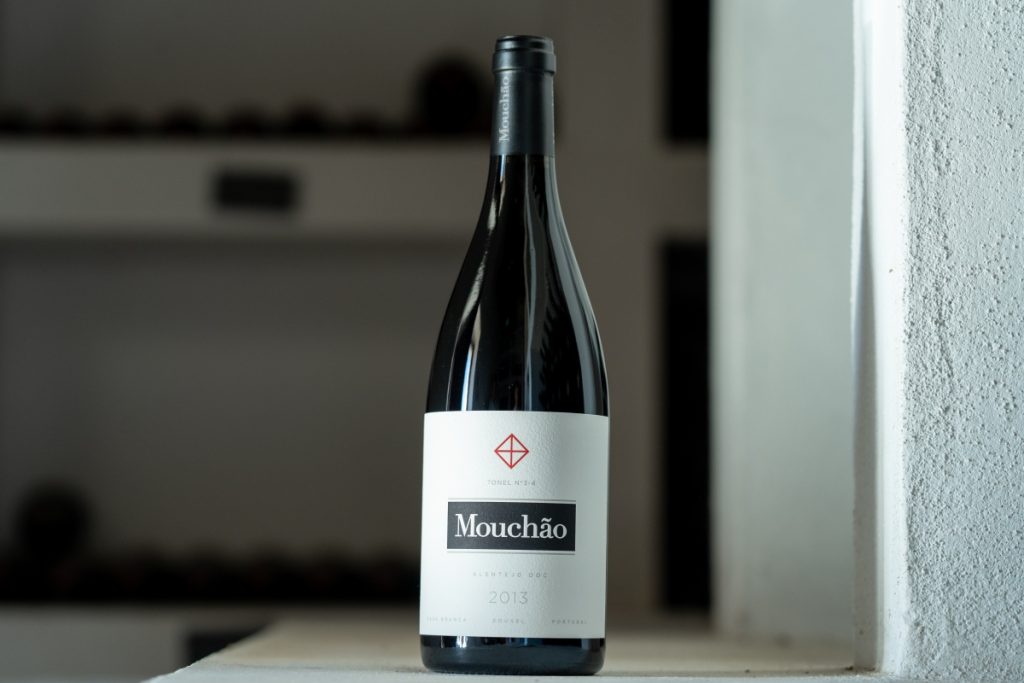
Although Alentejo is warm, with very hot summers, Mouchão is located at an elevation of 200-400 metres. Here, the diurnal range aids perfect ripening of the grapes, aided by the sandy-alluvial soil from the two rivers abutting the land. “We could use machines,” adds Ferreira, “It might be cheaper but it would not be Mouchão.”
Nonetheless, climate change is casting its shadow on sunny Alentejo, admits Ferreira, and harvests do get affected. Alicante Bouschet does withstand the heat. Of course, the grape is not the only one grown at Mouchão – Trincadeira, Aragonêz, Touriga Franca, Touriga Nacional, Syrah and Castelão (Periquita) are some of the black varieties growing, while Antão Vaz, Arinto, Verdelho and Fernão Pires are among the whites. Typically Alentejo wines are blends of native grapes, which give the wines the fruit, structure, and body. Their icon wine is simply named Tonel no 3-4, 100% Alicante Bouschet.
Their portfolio, which Ferreira describes as “wines for the long haul”:
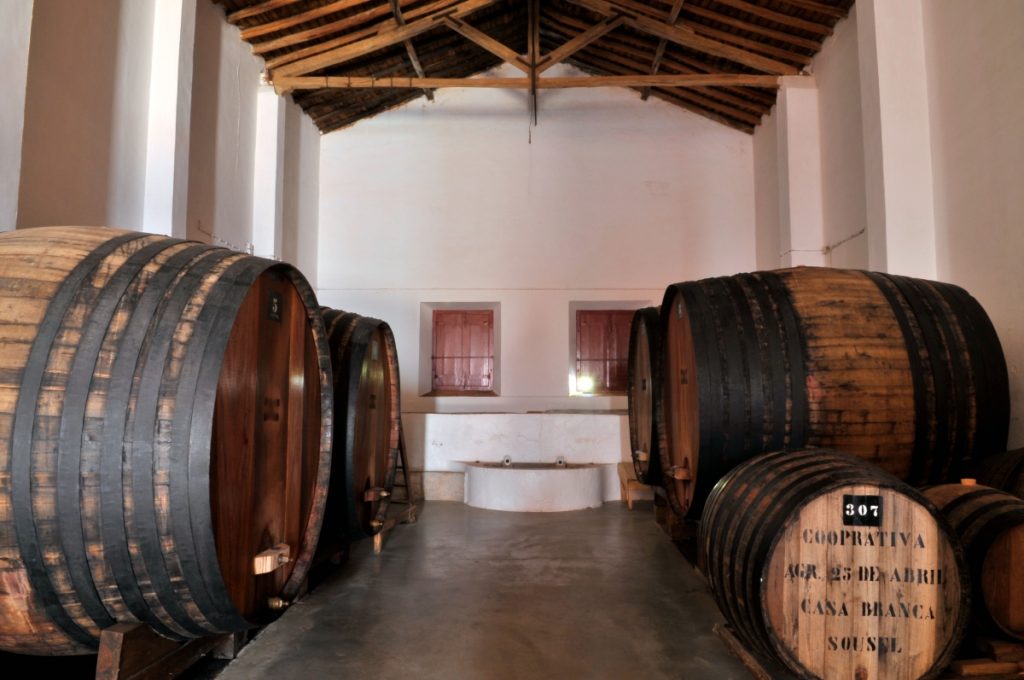
Inside the adega. The old tonels, barrels and in the far end, old stone lagares.
Dom Rafael Branco 2018
Arinto, Verdelho and Antao Vaz. Citrus and tropical fruit and herbal notes, with fresh acidity. Kept on lees for 3-4 months for texture and body. No oak, a persistent finish.
Pressed in the lagare and then blended in stainless steel to keep the primary fruit in balance.
Dom Rafael Tinto 2016
30% Alicante Bouschet
Red fruit, soft, elegant tannins with a hint of spice. Aged like a reserve wine, though not marketed as one. Great price-value ratio.
Ponte Canas 2015
Touriga Nacional, Syrah, Touriga Franca with 5% Alicante Bouschet
Dark fruit dominates. Spice notes, concentrated fruit, and a long finish.
Mouchão 2013
Their flagship wine. 90% Alicante Bouschet, 10% Trincadera (depending on vintage variations, Aragonez might replace the Trincadera). Aged 5 years, 2 of which in old wood (tonel).
Tonel No 3-4
Their super-premium wine made only in the best vintages and named after the Brazilian oak tonels in which it is stored. Foot-trodden and racked directly into the tonels. Very concentrated, big body, smooth silky tannins, great structure.
Below, watch assistant winemaker Fabio Rocha describe the wines of
Mouchão, and what makes their flagship grape variety, Alicante Bouschet, so special.
Mouchão wines are available in India in retail in Mumbai, Delhi. Imported by winepark.in. Price from Rs 4750
Visits to the winery by prior appointment only.
Herdade do Mouchão, 7470-158 Casa Branca, Portugal.
www.mouchao.pt

